#atlanta poets
Text


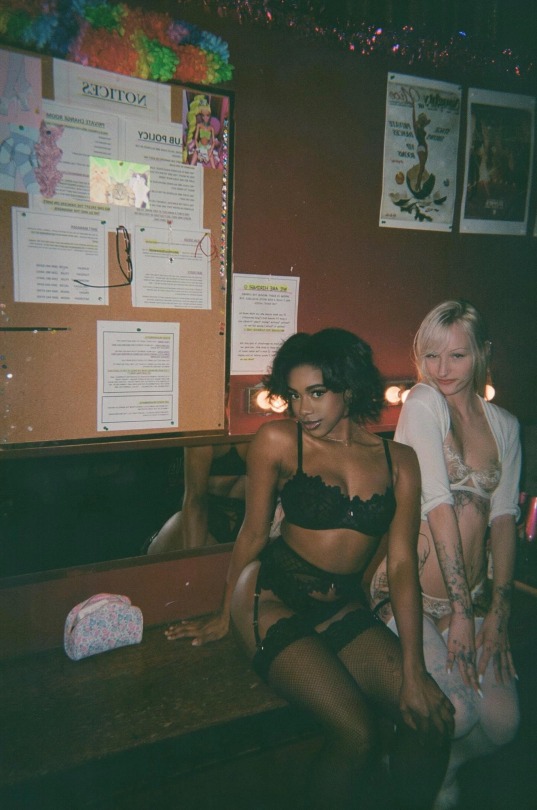
Odette & Odille
#blackout#black women#poets on tumblr#melanin#black tumblr#black twitter#black femininity#blackgirlmagic#dark skin black women#black women in luxury#black swan#white swan#swan lake#90s supermodels#black supermodels#runwaystyle#natural hair#norwegian#new york#artists on tumblr#ballet#ballerina#baby heaux#high class heaux#heaux tips#heauxlife#self healing#newark#atlanta#meg thee stallion
35 notes
·
View notes
Text

Tuesday Poem
TUESDAY, FEB 6, 2024
BY JIM CULLENY
The moon rose over the bay. I had a lot of feelings
I am taken with the hot animal
of my skin, grateful to swing my limbs
and have them move as I intend, though
my knee, though my shoulder, though something
is torn or tearing. Today, a dozen squid, dead
on the harbor beach: one mostly buried,
one with skin empty as a shell and hollow
feeling, and, though the tentacles look soft,
I do not touch them. I imagine they
were startled to find themselves in the sun.
I imagine the tide simply went out
without them. I imagine they cannot
feel the black flies charting the raised hills
of their eyes. I write my name in the sand:
Donika Kelly. I watch eighteen seagulls
skim the sandbar and lift low in the sky.
I pick up a pebble that looks like a green egg.
To the ditch lily I say I am in love.
To the Jeep parked haphazardly on the narrow
street I am in love. To the roses, white
petals rimmed brown, to the yellow lined
pavement, to the house trimmed in gold I am
in love. I shout with the rough calculus
of walking. Just let me find my way back,
let me move like a tide come in.
by Donika Kelly
from Academy of American Poets, 11/20/17
14 notes
·
View notes
Text
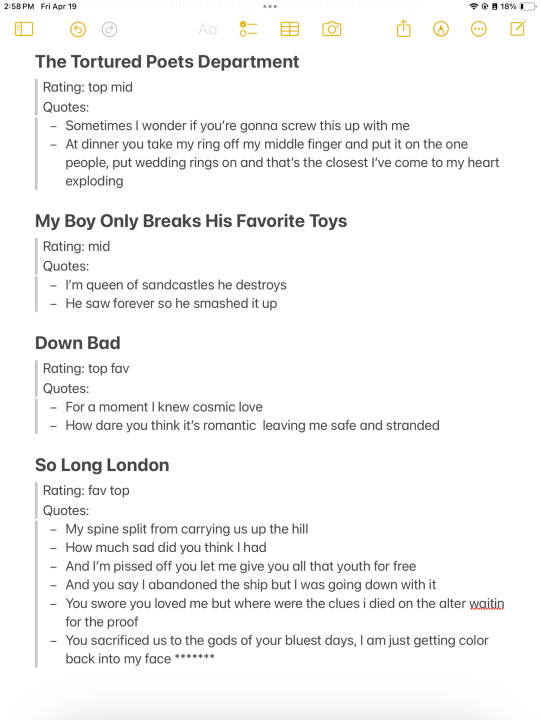
Treating TTPD like a AP Lit assignment like it deserves. More notes to come.
#the tortured poets department#taylor swift#ttpd#swifties#lyrics#taylornation#taylors version#music#lesbian#lgbtq#atlanta#queer#pride
4 notes
·
View notes
Text
instagram
#atlanta#poetry#spilled ink#creative writing#atl#spilled thoughts#poem#poet#art#creative#music video#spoken word#spoken poetry#poets on tumblr#original poem#poems on tumblr#writers and poets#the tortured poets department#written#writers#write#writer#writing#writers on tumblr#writerscommunity#poetic#dead poets society#urban art#artistic#artists
2 notes
·
View notes
Text

Pluto 20k visuals
#art#generationalwealth#mansorus#mental health awareness#philly#future hndrxx#future#future the wizard#atlanta#rapper#artist#global#tumblr aesthetic#poet#superstar#freebandz
5 notes
·
View notes
Text
“𝑰𝒕 𝒅𝒐𝒆𝒔 𝒏𝒐𝒕 𝒅𝒐 𝒕𝒐 𝒅𝒘𝒆𝒍𝒍 𝒐𝒏 𝒅𝒓𝒆𝒂𝒎𝒔 𝒂𝒏𝒅 𝒇𝒐𝒓𝒈𝒆𝒕 𝒕𝒐 𝒍𝒊𝒗𝒆.”

#atlanta#touch#love#poets on tumblr#harry potter#loveislove#travel#fantasy#spilled ink#long reads#wonderlust#livefree
1 note
·
View note
Audio
All it takes is a spark to set off a blaze of creativity, and no one knows that better than our first guest of the year, visual artist Sharon Burton. As a creative coach, her specialty lies in helping people reclaim their creative lives, which I think is a fantastic way to start off 2023.
Sharon talked about her coaching practice Spark Your Creative, described the different courses and services she offers, and spoke on how using joy as resilience is a key part of her work. Sharon also talked about growing up in Philly, working in public health, and shared how her time in Atlanta opened her eyes to her true calling.
If you’re looking for a creative spark, then I hope this conversation with Sharon helps you begin this year on the right track!
For extended show notes, including a full transcript of this interview, visit revisionpath.com.
DONATE TO REVISION PATH
For 10 years, Revision Path has been dedicated to showcasing Black designers and creatives from all over the world. In order to keep bringing you the content that you love, we need your support now more than ever.
Click or tap here to make either a one-time or monthly donation to help keep Revision Path running strong.
Thank you for your support!
Revision Path is brought to you by Lunch, a multidisciplinary creative studio in Atlanta, GA.
Executive Producer and Host: Maurice Cherry
Editor and Audio Engineer: RJ Basilio
Intro Voiceover: Music Man Dre
Intro and Outro Music: Yellow Speaker
FOLLOW US: Apple Podcasts | Google Podcasts | Spotify
#Revision Path#Sharon Burton#Spark Your Creative#creativity coach#visual artist#poet#Saint John's University#Clark-Atlanta University#DMV#Washington DC
0 notes
Photo
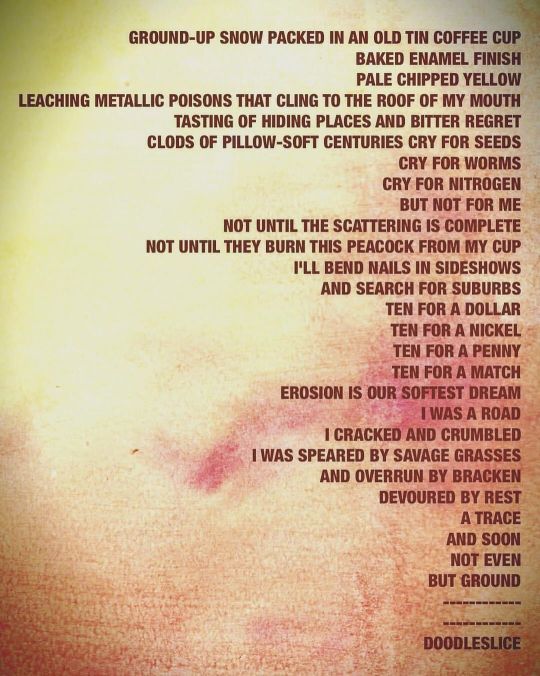
Ground By Doodleslice 2014-08-26 Ground-up snow packed in an old tin coffee cup Baked enamel finish Pale chipped yellow Leaching metallic poisons that cling to the roof of my mouth Tasting of hiding places and bitter regret Clods of pillow-soft centuries cry for seeds Cry for worms Cry for nitrogen But not for me Not until the scattering is complete Not until they burn this peacock from my cup I'll bend nails in sideshows And search for suburbs Ten for a dollar Ten for a nickel Ten for a penny Ten for a match Erosion is our softest dream I was a road I cracked and crumbled I was speared by savage grasses And overrun by bracken Devoured by rest A trace And soon Not even But ground === . . #poem #poems #atlanta #atlarts #atlantaartist #poetry #poetrycommunity #poetsofinstagram #poet #poemsofig #poemoftheday (at Doodleslice Dojo) https://www.instagram.com/p/CeIPUnjumNs/?igshid=NGJjMDIxMWI=
#poem#poems#atlanta#atlarts#atlantaartist#poetry#poetrycommunity#poetsofinstagram#poet#poemsofig#poemoftheday
0 notes
Text
palestinian poets: rasha abdulhadi
rasha abdulhadi is a queer palestinian southerner with long covid who cut their teeth organizing on the southsides of chicago and atlanta. rasha's writing has appeared in speculative city, liminality, strange horizons, shade journal, mizna, room, itap| magazine, beltway poetry, and lambda literary. their work is anthologized in essential voices: a COVID-19 anthology, unfettered hexes, halal if you hear me, stoked words, and luminescent threads: connections to octavia butler. rasha is a member of justice for muslims collective, the radius of arab american writers, and alternate ROOTS. their small book of poetry is WHO IS OWED SPRINGTIME (neon hemlock press). you can find rasha on twitter.
RASHA'S CALL TO ACTION
"rasha abdulhadi is calling on you, dear reader, to join them in refusing and resisting the genocide of the palestinian people. wherever you are, whatever sand you can throw on the gears of genocide, do it now. if it's a handful, throw it. if it's a fingernail full, scrape it out and throw. get in the way however you can. the elimination of the palestinian people is not inevitable. we can refuse with our every breath and action. we must."
IF YOU READ JUST ONE POEM BY RASHA ABDULHADI, MAKE IT THIS ONE
"Casting Runes" was originally published by fiyah literary magazine in the palestine special issue, which was curated, edited, illustrated and comprised entirely of palestinian creators, in december 2021. the collection was edited by guests nadia shammas and summer farah, and featured cover art by leila aboutaleb.
if you have the means, you can purchase the e-book of the fiyah lit palestine special issue for USD $5.99, the proceeds of which go to medical aid for palestinians.
OTHER POEMS ONLINE THAT I LOVE BY RASHA ABDULHADI
Rabbits at lambda literary
Picking up Rocks at split this rock (also read aloud)
Dad's Combs at beltway poetry
Table of Contents for a Manual of Pandemic Response Protocols at poetry.onl (also read aloud)
Safe Harbor in Enemy Homes at get lit anthology
Build the Graves at the deadlands
How to Build a Dad Out of Bricks at electric lit
459 notes
·
View notes
Text
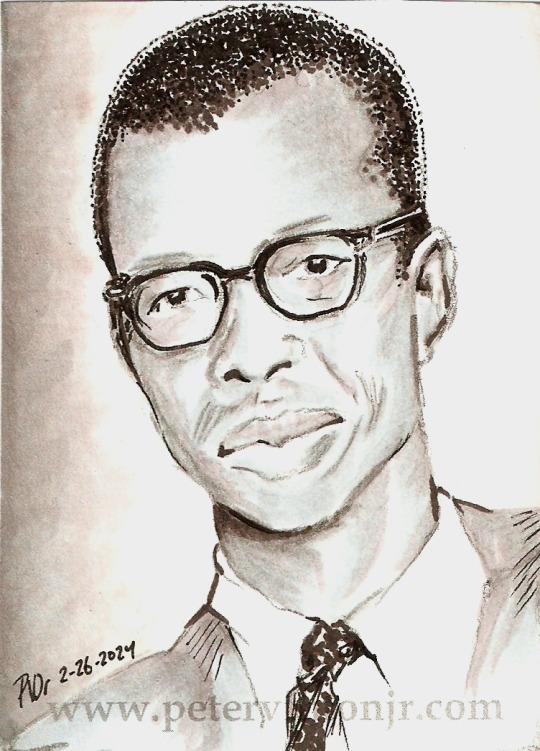
"As black America approaches the 21st century, our capacity or our failure to build a solid bridge . . . of works will determine whether millions of young blacks already with us or yet unborn will cross over into the new century, or fall into the abyss."
Another name you almost certainly didn't know: M. (Moses) Carl Holman, civil rights activist, writer, and poet. Born in 1919 St. Louis, Holman showed an early gift for writing, and at the age of 19 won a scriptwriting award from a popular syndicated radio program. He graduated magna cum laude from Lincoln University and went on to acquire Master's degrees from the University of Chicago and from Yale. While at Yale he published his first collection of poems, and began regularly writing articles for various newspapers and magazines on income inequity, urban poverty, literacy, and other issues important to Black Americans. In 1962 he taught English at Clark College in Atlanta, giving him a front-row seat to key events in the earliest days of the civil rights movement. As some of his students participated in sit-ins and the Freedom Rides, he found himself appointed to the U.S. Commission on Civil Rights, of which he eventually became deputy director in 1966.
In 1968 Ebony magazine named Holman as one of the 100 Most Influential Black Americans. That same year Holman published what is probably his best-known work: The Baptizin', a play which won first prize in the National Community Theater Festival. In addition to multiple collections of poems, Holman also published a definitive overview of the civil rights movement in the U.S., from 1965 to 1975.
Perhaps most significantly, in 1971 Holman was named Vice President of the National Urban Coalition. This organization had re-formed in 1967 in the wake of the so-called "long, hot summer" of racial strife and injustices. During this time Holman's singular talent for delivering quiet and polite, but still powerful, speeches came to the fore and he jumpstarted a great many local housing, education, job training, and economic development programs aimed at disadvantaged Black and Hispanic communities.
In his later years Holman forcefully addressed the issue of "dual literacy" for Black children --emphasizing that such students not only needed to be well-versed not only in the fundamentals such as reading, writing, and public speaking; but also in math, science, and technology. His 1988 obituary notes that Holman "had an uncanny ability to form a coalition out of the most diverse elements, and it was often said that the key to his ability to do this was the fact that he never appeared to have an agenda for himself."
(Teachers: Need some resources to engage your students this Black History Month? I'll send you a pile of these trading cards, no cost, no obligation. Just give me a mailing address and let me know how many students in your class. No strings attached, no censorship, no secret-relaying-of-names to Abbott or DeSantis or HuckaSanders.)
#blm#black lives matter#m carl holman#black history month#black excellence#national urban league#teachtruth#dothework#showup
117 notes
·
View notes
Text
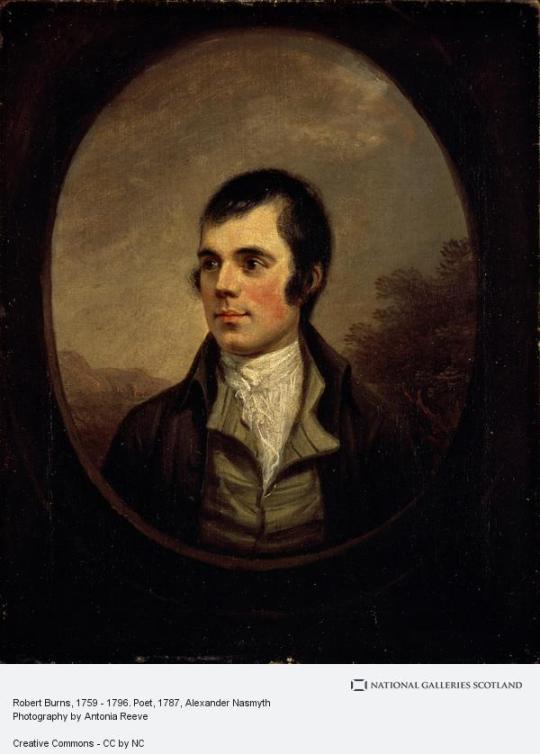
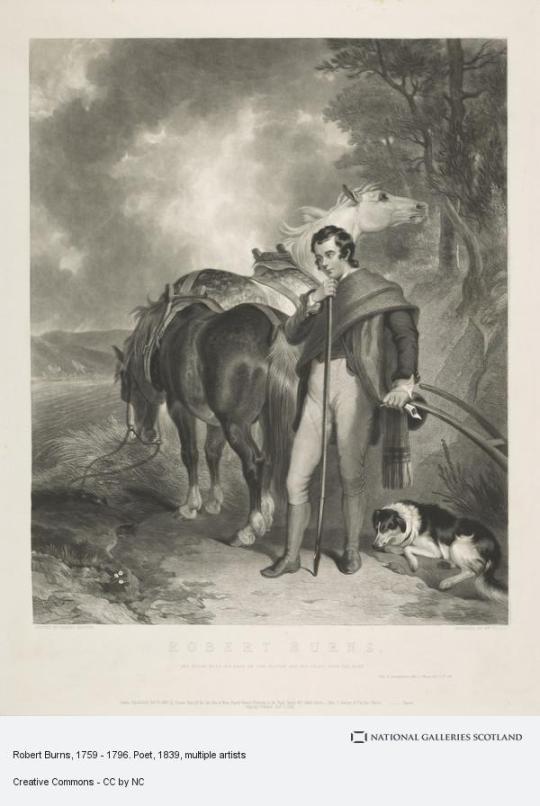
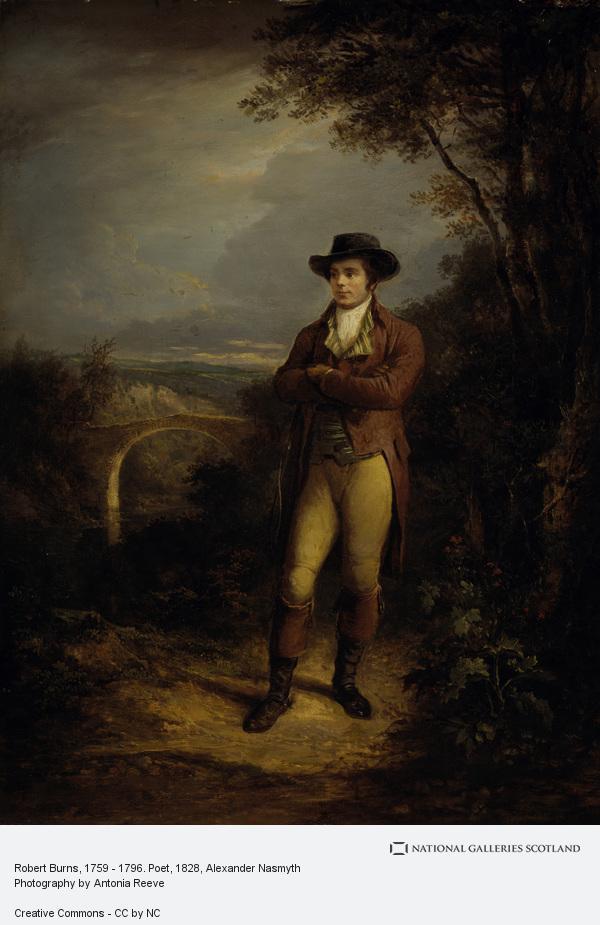
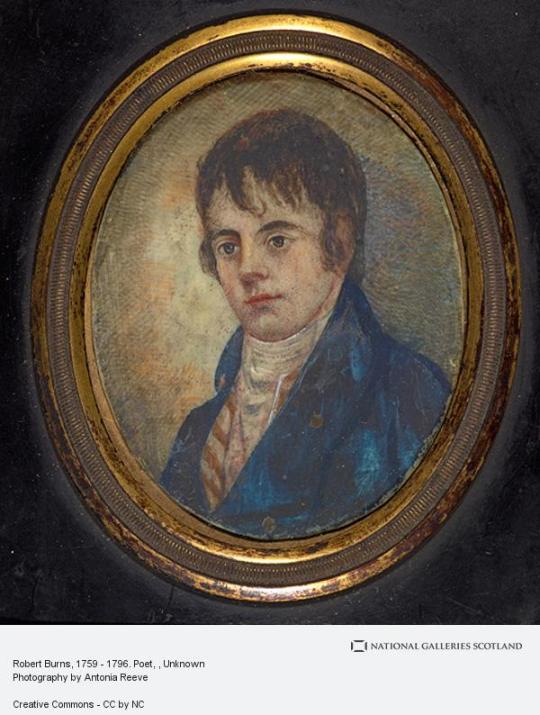
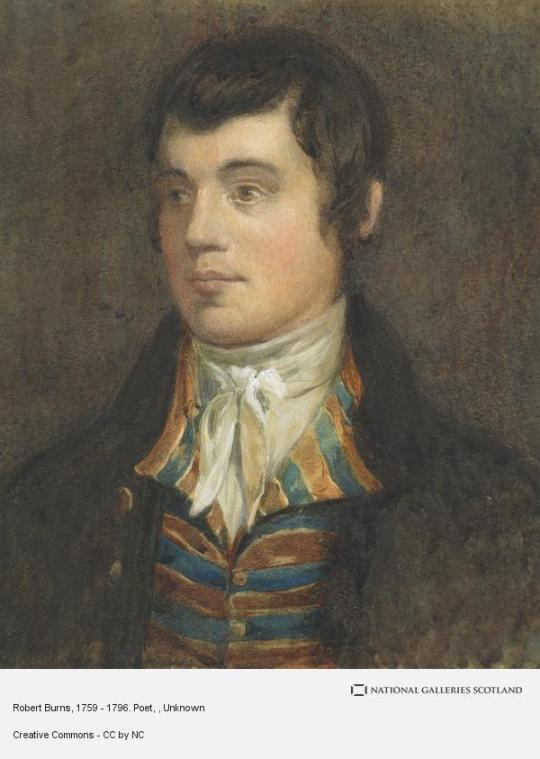
25th January marks the annual celebration of Burns Night - a time to celebrate Scotland's favourite son, and world renowned poet and song writer Robert Burns who was born on this day 1759.
I have covered Oor Rabbie on may occasions so on this day I hope to bring you a few facts about Scotland's National Bard and his legacy.
Known as somewhat of a ladies man, Burns is known to have fathered 12 or 13 children, depending on the source, to 4 different women. His last born child, Maxwell, was born on the same day as his funeral 25 July 1796, meaning his wife Jean Armour missed his send off.
As a lad growing up in Ayrshire, Burns was always fond of supernatural stories, most of which were told to him by an old widow who helped out on his father's farm. These stories no doubt had an influence on his writings in the future and perhaps were the inspiration for his classic masterpiece, Tam O'Shanter and the lesser known Adress to the Deil and Halloween. Even in these poems he flattered the fairer sex with his words, this from the latter poem.....
The lasses feat, an' cleanly neat, Mair braw than when they're fine; Their faces blythe, fu' sweetly kythe, Hearts leal, an' warm, an' kin':
Of course Burns also gives another of his favourite subjects a mention in this verse, "the deil himsel," Look it up it's another guid yin!
Burns didn't always want to stay in Scotland - he hoped to move to the Caribbean island of Jamaica. Although following the success of his poetry collection 'Poems, Chiefly in the Scottish Dialect' (or the Kilmarnock Edition as it is known), he opted to move closer to home, settling in Edinburgh for a time.
For all his fame, Burns never forgot his humble roots. His love for farming stayed with him throughout his life and his writing often dealt with issues affecting the poorer classes, notably highlighting the need for greater social equality. Indeed he is known as the Ploughman Poet, a nod to his farming life.
And on his legacy, Burns has gathered some very famous fans since his passing, US president Abraham Lincoln could recite Burns’ works by heart. Bob Dylan says that ‘A Red, Red Rose’ by Burns is his source of greatest creative inspiration and Michael Jackson song Thriller is said to have been inspired by Tam O'Shanter.
In Japan at pedestrian crossing you don't get beeps like here in Scotland, they play a rendition of the Burns song ‘Coming Through The Rye’.
There are more statues in honour of Rabbie than any other male figure in history, only surpassed in total by Queen Victoria. (I am not including religious statues).
In 2005 Robert Burns was the first person ever to feature on a bottle of Coca Cola, about a million were made they currently trade for around £10 and I have one, unopened in my kitchen cupboard.
Arguably Burns most famous song, Auld Lang Syne, has appeared in over 170 Hollywood films including The Apartment, It’s A Wonderful Life and When Harry Met Sally. , but he only rewrote the verse, he sent the poem to the Scots Musical Museum in 1788 indicating that it was an ancient song but that he'd been the first to record it on paper. The phrase 'auld lang syne' roughly translates as 'for old times' sake', and the song is all about preserving old friendships and looking back over the events of the year.
In the US city of Atlanta, there is a life-size imitation of Burns’ first home in Alloway, South Ayrshire, although it doesn't have the famous thatched roof.
In Scotland, there are some 20 official Burns memorials dotted around the country, from Aberdeen to the final resting place of Burns in Dumfries, which commemorate his journey from Ayrshire to “Auld Lang Syne”.
‘My Heart’s in the Highlands’ was translated and adopted as the marching song of the Chinese resistance fighter in the Second World War.
In 2009 STV viewers voted Robert Burns ‘The Great Scot’, beating the likes of William Wallace, Robert the Bruce among others.
There are Burns Clubs scattered across the globe, but the very first one, known as The Mother's Club, was founded in Greenock in 1801. They held the very first Burns Supper on what they thought was his birthday, January 29th 1802, only to discover that his birthday was actually January 25th!
Since then Burns suppers have been held worldwide.
I know some of you out there will toil to understand some of Burns's poetry, don't fear you will find the Best of Robert Burns, translated into the "de'il's tongue" just Click here...
The song Ae Fond Kiss, was one of my mums favourites the words "Never met-or never parted, We had ne'er been broken-hearted" are inscribed on her grave......"
43 notes
·
View notes
Text
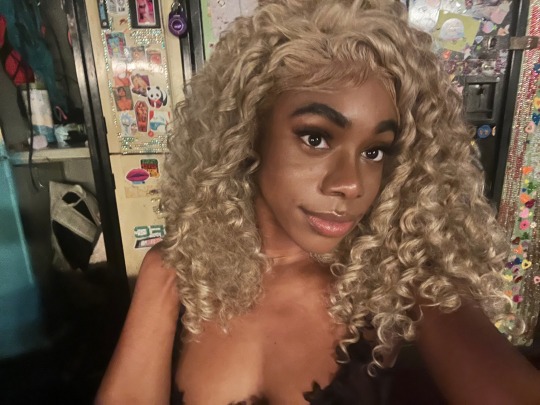
#blackout#black women#poets on tumblr#melanin#black tumblr#black twitter#black femininity#blackgirlmagic#dark skin black women#black women in luxury#soft black girls#heauxlife#dancers#new your city#atlanta#los angeles
67 notes
·
View notes
Text
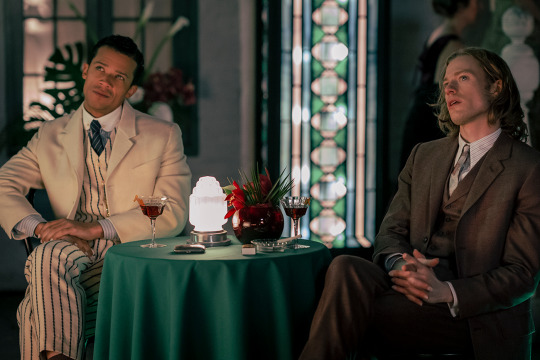
It was a “mighty tall ladder” to climb, but life at the top is truly as good as Louis always imagined. Under his ownership the Azalea has become the “brightest club in the district.” It’s successful enough to continue providing his loyal, beloved employees generous salaries. And on top of star performer Jelly Roll Morton, they just hired a new singer who heard about the place “all the way in Atlanta. They talking about this place in Atlanta!”
“1917 sounds like it was a pretty good year,” Daniel agrees.
Tensions even appear to have cooled with Lestat; in contrast to the frightening scene that closed the previous session, this one opens on a midnight date in Jackson Square, before Louis takes his nightly victory lap at the Azalea. It’s reminiscent of their early courtship, playing docent to the new, mysterious gentleman in town—save for one key difference. Two sessions ago Jackson Square meant comfort, an opportunity for Louis to shed his armor and share himself with someone other than Paul; now he and Lestat sit in silence.
It appears the tenor’s death is still weighing on Louis, even after half a year. Humiliation. Complicity. A lifetime of joy destroyed in half an hour. The fear that stopped him from objecting in the parlor no longer factors. “The poets, composers. . . . Shouldn’t we spare them the randomness of our killing?”
It’s Lestat’s turn for disinterest. No one knows better than he, after all, that if you “thrust [any human] into circumstance, whisper to them their Lord, God and Savior is not listening . . . you will see all kinds of depravity.” Nonetheless, a rare and well placed “mon cher” gets him off the bench and testing Louis’s theory.
He has some questions of his own, as they stroll through Storyville. How do we decide who’s bad enough? How long do we wait to confirm they are? “Say we come upon a murderer planting a flowerbed, thinking only of flowers.” A thief finally meets Louis’s requirements; Lestat prepares the victim before they can dawdle any longer.
Louis, faced with exactly what he claimed he wanted, grabs the nearest cat instead.
Pivoting: last-ditch effort or sound business strategy?
#amc interview with the vampire#interview with the vampire#iwtv#iwtv analysis#iwtv meta#louis de pointe du lac#lestat de lioncourt#daniel molloy#claudia#claudia iwtv
37 notes
·
View notes
Text
...
"Disabled asexual people do exist. Although disability doesn’t automatically equate with asexuality, there are disabled aces who feel that their sexual orientation is connected to their disability. In the autistic community, there are people who feel that their asexuality has a relationship to the way they view and experience the world as an autistic person. Some people feel that their past trauma, PTSD, and other mental health issues directly impact their asexuality. And others with chronic pain and fatigue-related symptoms have said that these symptoms impact how they experience asexuality, whether it’s a fluctuating scale from day-to-day or more constant.
“My desire or ability (or lack thereof) to engage in romance or sex due to personal choice, pain, medical concerns or my being a pan gray ace, that’s all as valid as anyone else’s reasons, disabled or not,” says Emily Johnson, a social media and digital editor, designer, and poet in Atlanta, Georgia. “Abled people get too tired. Abled people experience pain. Abled people simply aren’t interested.”
Sexuality is deeply personal for everyone. I have several friends who identify as asexual, and none of us experience our asexuality in exactly the same way. It helps when we can avoid assumptions based on our own experiences or what we’ve been taught by society—so when sex is brought up in conversation, I don’t conclude that everyone in the group who hasn’t had sex eventually wants to. While talking to other ace friends, I remember that some asexuals have sex regularly, some never have sex, some occasionally have sex, and so on. We all experience our sexual and romantic lives differently, and the best thing we can do if we aren’t sure is to ask someone whether they’d like to share and then listen with empathy and understanding."
69 notes
·
View notes
Text
instagram
#poetry#poet#poem#poets on tumblr#creative writing#atlanta#spilled ink#atl#spilled thoughts#art#creative#my quotes#quote#quoteoftheday#quotes#life quote#universe#world#night thoughts#thoughtful#random thought#thoughts#words to live by#words#words to remember#spilled poetry#spilled words#spilled writing#spilled poem#spilled feelings
2 notes
·
View notes
Text
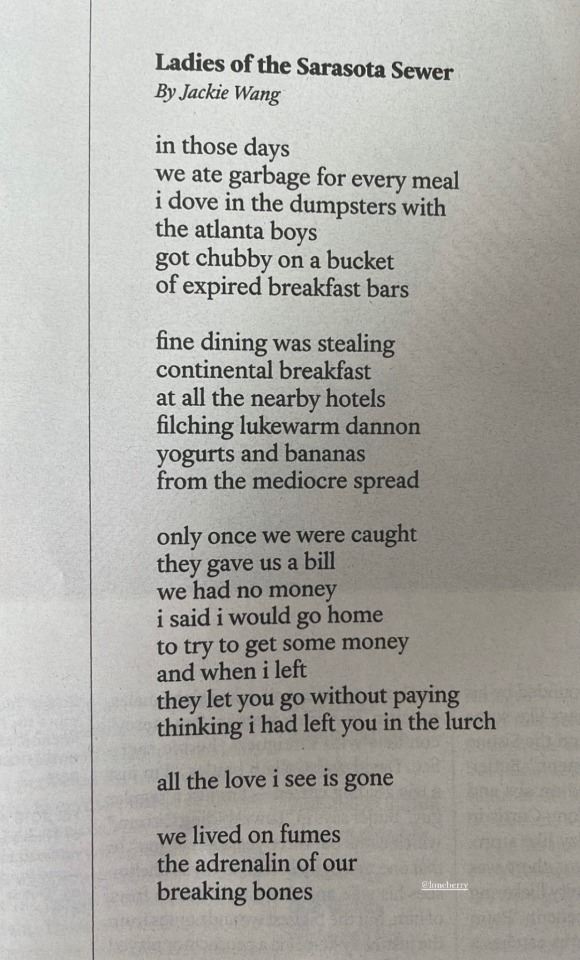
I have a poem that was recently published in The New York Times Magazine here.
Since it’s paywalled, I’m pasting Anne Boyer’s beautiful introduction below.
Jackie Wang’s poem draws its title, in part, from Djuna Barnes’s 1936 novel of queer love, “Nightwood”: “ladies of the haute sewer taking their last stroll, sauntering on their last Rotten Row.” The poem’s rhythm echoes the rhythm of the life the poem describes. Some readers will already know this life. For them — for us — the poem is a recognition, one I don’t often see in contemporary poetry. Poets, however, were once experts on the ecstasy of the gutter. As Francois Villon or Charles Baudelaire did before her, Wang writes poetry that reminds us that life is more than the grim fatalism of to-do lists and bank accounts. The poem rushes forward, headed toward the edge. Then the lover-thieves get caught. The bill comes due. The poem slows. The heart breaks. This was, after all, an elegy. Despite the living thrill of its cadence, “those days,” those lovers, are gone now. What’s left is poetry. Selected by Anne Boyer
Ladies of the Sarasota Sewer
By Jackie Wang
in those days
we ate garbage for every meal
i dove in the dumpsters with
the atlanta boys
got chubby on a bucket
of expired breakfast bars
fine dining was stealing
continental breakfast
at all the nearby hotels
filching lukewarm dannon
yogurts and bananas
from the mediocre spread
only once we were caught
they gave us a bill
we had no money
i said i would go home
to try to get some money
and when i left
they let you go without paying
thinking i had left you in the lurch
all the love i see is gone
we lived on fumes
the adrenalin of our
breaking bones
#poetry#literature#anne boyer#jackie wang#new york times#djuna barnes#nightwood#queer poetry#lesbianism#elegy
54 notes
·
View notes